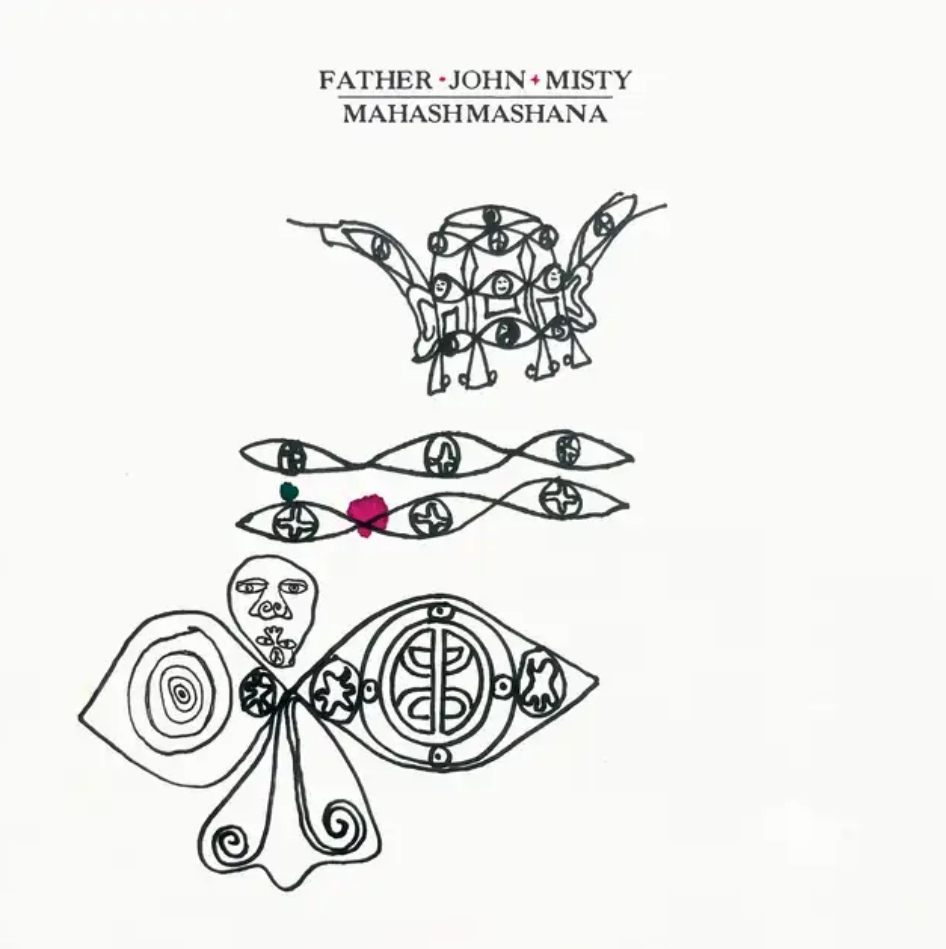Seattle singer-songwriter Joshua Tillman, currently releasing music under the pseudonym Father John Misty, unveiled his newest album, “Mahashmashana,” on Friday. Borrowing its name from the Sanskrit word for “great cremation ground,” “Mahashmashana” is a musical celebration of ending, both of relationships and even of the Father John Misty persona itself.
Tillman, former Fleet Foxes drummer, started his solo career in 2003 under the pen name J. Tillman, singing glum folk music that was inspired by his stringent evangelical upbringing. Finding drumming with Fleet Foxes unfulfilling — and embroiled in personal conflict with his fellow band members — Tillman quit and set off to create music that embodied his personal affinity for humor and cynicism.
Tillman’s debut album as Father John Misty, “Fear Fun,” was released to critical acclaim but not much commercial success. His sophomore release, “I Love You, Honeybear,” was what really catapulted his career into the public eye, marrying gleeful oversharing about his newlywed life with a demented apocalyptic fascination.
As Father John Misty, Tillman garnered his fair share of criticism for being cruel to concertgoers, difficult to work with and addicted to drugs. His musical expertise, however, is undisputed.
Since then, Tillman has dabbled in the realm of political satire in his 2017 album “Pure Comedy” and pop in his 2022 album “Chloë and the Next 20th Century.” His whole repertoire is a delicate balancing act between the grotesque and the beautiful, the lurid and the romantic. Now, “Mahashmashana” takes all of that precedent and pushes it to its logical extreme.
The album opening song, also titled “Mahashmashana,” juxtaposes an existential conflict about religion with a very immediate romance. At the same time, Tillman contrasts an orchestral backdrop with traditional country rhythms and slide guitars, culminating in a melancholy surge at the chorus.
Here, Tillman’s voice is more powerful than ever, and the background of overdriven guitars and saxophone accompany what may be his best work to date, a nine-minute ballad of epic proportions.
Tillman follows this up with “She Cleans Up,” a cynically feminist anthem that imagines, among other things, a world where Mary Magdalene took up arms to save Jesus. Over a blaring and jazz-tinged instrumental that progressively builds into complete insanity, Tillman praises the tireless efforts of women to rebuild a crumbling society and expresses fear of men who do violence and harm upon the world.
“It’s a good thing God gave us someone on whom we can depend to clean up,” he sings.
The next song, “Josh Tillman and the Accidental Dose,” references Tillman’s real name in a comical dissection of existential crisis. He describes himself in a room with his publicist, tripping on acid and struggling to keep his composure. All the while, scores of strings stir around him, culminating in an ending instrumental that seems to sweep the vocals away.
Following in the theme of mental health, the aptly named “Mental Health,” approaches the subject with a wry sense of humor accompanied by flutes and a subtle choir. Tillman compares society to a “panopticon” and lambasts the idea that he needs to find his “true self” to stem his mental anguish.
“Mental health, mental health / There’s no higher virtue held in this crazy world / It’s more than a little bit absurd,” Tillman sings.
Tillman’s next track, “Screamland,” focuses more on percussion and electronic effects, emulating the titular screams with high-pitched notes from violin strings. Tillman lyrically rebukes naive optimists and begs to be taken to a better world. The world, he argues, is beyond saving: “Here lie the born losers, God won’t take them back.”
Instead of conversing with the outside world, the subsequent song, “Being You,” is a discussion between Tillman and himself, or perhaps his Father John Misty persona. While this song features one of his less noteworthy instrumentals — mostly subdued orchestra and laidback drumming — it boasts some of his most insightful lyrics to date.
“Just a spitting image / Of someone that I knew,” he sings. “Just a perfect parody / I can barely do.”
“I Guess Time Just Makes Fools of Us All” follows up that slow-paced dirge with a jazzy big band standard. Over this head-bobbing score, Tillman rattles off a series of failures, including the ending of a kingdom, of a career and of humanity.
All this imagery of finality culminates in Tillman’s swan song, the entrancing “Summer’s Gone.” Paired with a wistful ensemble of flutes and violins, Tillman imagines the world in the midst of a perpetual summer where the beauty is lost on him, “a lecherous old windbag.” As “Summer’s Gone” shows that his persona has no place left in the world, the brilliance of the instrumentals remind the audience of the beauty left to discover.
“Mahashmashana” is a crowning achievement, a masterful deconstruction of Father John Misty as an outdated character. If this is the last release under that moniker, the album may truly deserve to be called a great cremation ground.









